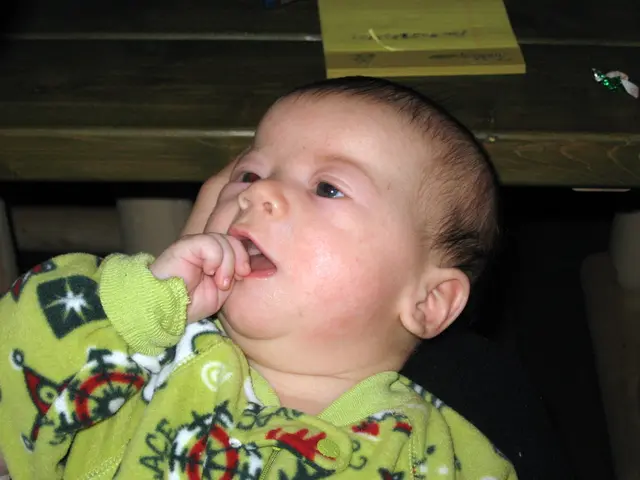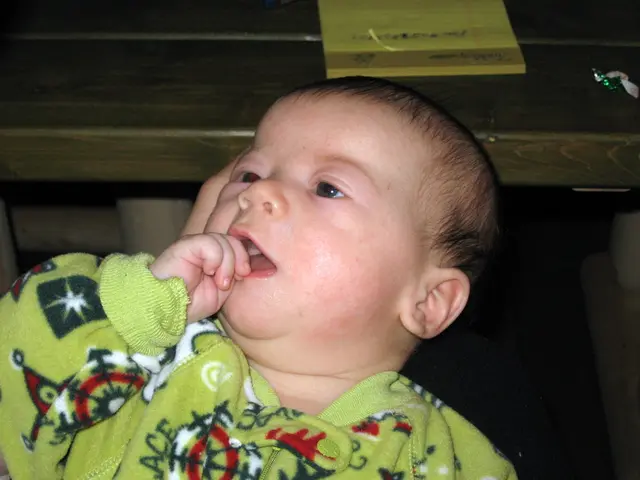Effective Methods to Correct Behavior in Public Settings Without Causing Awkwardness:
Navigating public discipline as a parent - or any caregiver for that matter - can be a tough task. Two-to-six-year-olds, in particular, might surprise us with a world of emotions and actions that can catch us off guard. But worry not, for there's a mix of practical strategies and techniques to keep your cool, teach responsibility, and maintain your dignity.
Step One: Remember the Big Picture
Effective discipline is a skill that's all about teaching, not simply enforcing rules. Its primary purpose is to foster emotional maturity and acceptable behaviors, both of which take time. Bearing all this in mind, let's dive into eight proven strategies to help you handle public misbehavior effectively.
Set Yourself Up For Success
Before hitting the playground, grocery store, or any public setting, prep your child. Express clear, age-appropriate rules, expectations, and repercussions of rule-breaking. Creating a mindset of accountability lays the groundwork for good behavior. Also, if a certain activity tends to provoke tantrums or meltdowns, avoid it when out and about to minimize potential conflicts.
Practice Perspective-Taking
Take a moment to step into your child's shoes. Tantrums and outbursts often stem from frustration, language barriers, or difficulty understanding and communicating emotions. By viewing their behavior through this lens, you'll respond with empathy, patience, and restraint, as opposed to anger or embarrassment.
Encourage Open Dialogue
Engage with your child in conversation. Talk about what they're feeling, what's happening around them, and how you can help. These discussions not only foster openness but instill the valuable lesson of problem-solving and empathy-building.
Offer Choices
Empowering young children by giving them choices helps build independence and self-esteem. Instead of demanding compliance, offer solutions and choices that teach them to take responsibility for their actions. For example, "Do you want to clean up your toys now, or wait until after we read a story?"
Employ the Art of Distraction
When your child is on the brink of a meltdown, immediate distraction can disarm the situation. Introduce a toy, a game, or a snack to redirect their focus away from the root of the tantrum.
Time-Outs: A Powerful Tool
Reframe the common conception of time-outs as a punishment. Instead, view them as an opportunity for your child to calm down and reflect on their behavior in a safe, quiet space.
Natural Consequences: Teach Them Through Experience
Allow your child to experience the natural consequences of their actions. If they refuse to wear a coat, for example, they'll feel the cold. This builds critical thinking and decision-making skills without resorting to harsh punishment.
Stay Consistent
Remain steadfast in your discipline strategies to maintain consistency. Children thrive on routine and understanding what's expected of them. By staying consistent, you cultivate a sense of security and support, helping them grow into emotionally mature individuals.
Conclusion
With these eight practical strategies in your parenting toolbox, you're well on your way to managing public discipline effectively. Keep in mind that children are learning, growing, and exploring the world around them, and your approach should be flexible and adaptable to their needs.
When faced with challenges, turn to outside resources and support. Consult experts when you need additional guidance, remember that no one embodies the perfect parent, and that asking for help is a sign of strength, not weakness. Arm yourself with patience, empathy, and love, and you'll see your child flourish in no time.
- Maintaining consistency in discipline strategies helps children thrive on routine and understand what's expected of them, fostering emotional maturity and acceptable behaviors.
- A parent-child relationship built on respect, open communication skills, and empathy enables children to comfortably express their feelings and encourages problem-solving and empathy-building.
- Establishing boundaries, such as clear rules, expectations, and consequences, lays the groundwork for good behavior and accountability, which are essential in the parent-child relationship.
- In times of public misbehavior, employing various strategies, such as perspective-taking, open dialogue, offering choices, distraction, time-outs, and allowing natural consequences, can help teach responsibility and encourage emotional maturity.
- Ensuring health-and-wellness through practicing perspective-taking, offering choices, and allowing natural consequences can help children learn critical thinking and decision-making skills, contributing to their overall development.








